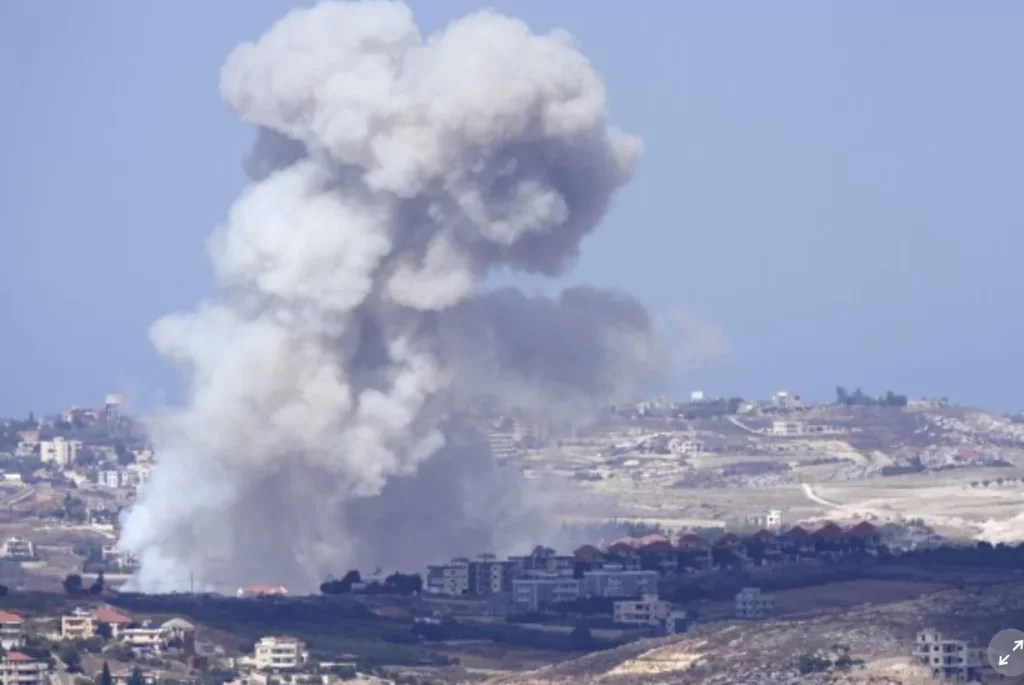A senior Israeli military leader indicated to his troops that they would soon invade southern Lebanon in a dramatic escalation against Hezbollah, the terrorist group based there that has been attacking them for nearly a year.
Israel Defense Forces chief of staff Herzi Halevi visited troops at the country’s northern border with Lebanon on Wednesday, and he told them, “The goal is very clear — to safely return the residents of the north. To achieve that, we are preparing the process of a maneuver, which means your military boots, your maneuvering boots, will enter enemy territory, enter villages that Hezbollah has prepared as large military outposts, with underground infrastructure, staging points, and launchpads into our territory, and carry out attacks on Israeli citizens.”
Israel and Hezbollah have engaged in a contained conflict for nearly a year, but it has devolved in September. Israel has carried out hundreds of strikes this week targeting Hezbollah leaders, as well as their weapons, which are strategically located in southern Lebanon, specifically to be used to target northern Israel.
Hezbollah targeted the Mossad headquarters, the national intelligence agency of Israel, in Tel Aviv with a “Qader 1” ballistic missile on Wednesday. Israel’s air defenses were able to intercept the missile, but the targeting of Tel Aviv, which is far from the Israel-Lebanon border, represents an escalation of targets for Hezbollah.
Hezbollah has the military capabilities to hit Tel Aviv and Jerusalem in Israel, though its attacks, dating back to Oct. 8, 2023, have almost exclusively only targeted near the border. Those cities could more regularly come under attack if Hezbollah decides to escalate its attacks on Israel in response to the Israeli ground operation into Lebanon.
“Today, Hezbollah expanded its range of fire, and later today, they will receive a very strong response. Prepare yourselves,” Halevi added.
Israel’s strikes on Monday resulted in the deaths of hundreds of Lebanese people, and it marked the deadliest day in the country since the 2006 war between Israel and Hezbollah.

The 2006 war concluded with the passing of United Nations Security Council Resolution 1701, which called for Israeli forces to leave southern Lebanon and for Hezbollah to remain north of the Litani River, which is about 18 miles north of the Israel-Lebanon border.
Hezbollah has not abided by the resolution and has stationed itself and its arsenal in violation of it, with limited response from the U.N.
Hezbollah began firing rockets, missiles, and drones into northern Israel a day after Hamas carried out its Oct. 7, 2023, terrorist attack that resulted in the killing of 1,200 people and the kidnapping of roughly 250 others in solidarity with Hamas. The goal was to divide the Israeli military’s attention in half so it had two conflicts to manage.
Israel evacuated more than 50,000 people from that northern area of the country due to concerns that Hezbollah could carry out similar cross-border raids as Hamas had. The 2006 war was also started by a Hezbollah cross-border raid in which three Israeli soldiers were killed, and two others were kidnapped.
The current cross-border aerial attacks have prevented the return to their homes. Lebanon has also had to evacuate tens of thousands of civilians due to threats from Israeli strikes.
Israel has “a real and legitimate problem” in the north with the attacks from Hezbollah, U.S. Secretary of State Antony Blinken explained on Wednesday, though he shared his belief that the best way to resolve the situation is through diplomacy, not militarily.
CLICK HERE TO READ MORE FROM THE WASHINGTON EXAMINER
Israel also occupied southern Lebanon from 1982 to 2000 before pulling its forces back.
“The reality is Israel left southern Lebanon,” Blinken said on NBC Today. “It had been occupying southern Lebanon for 15 years. It left in 2000. And all of these militia that existed there were supposed to put down their weapons. Hezbollah didn’t do it. And then repeatedly in the time after that, it attacked and posed a threat to people living in northern Israel. So, it’s very legitimate that Israel do something about Hezbollah.”
